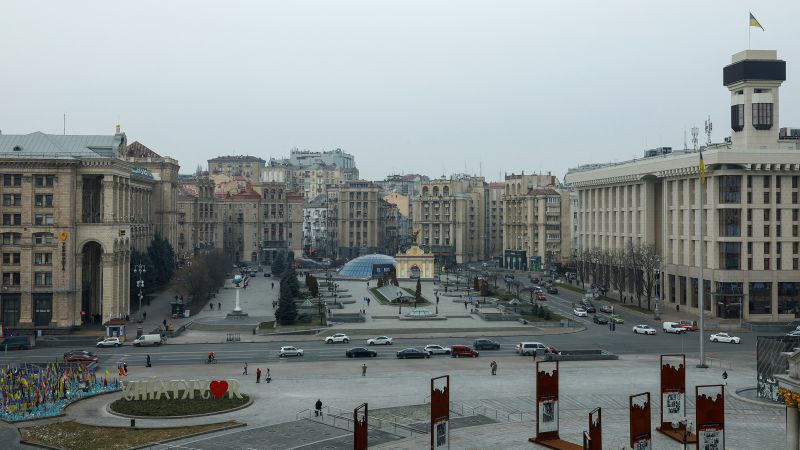The case of Iryna Danilovich, a human rights activist and nurse who disappeared in April 2022 while returning from work, sheds light on the dire situation in the Russian-occupied Ukrainian peninsula of Crimea. It took two weeks for Russian authorities to admit she was in their custody, where she was accused of illegal possession of explosives and subsequently sentenced to seven years in prison. During her trial, Danilovich bravely testified that she was tortured during her detention, highlighting the harsh treatment faced by individuals in these circumstances.
Currently, Danilovich has been deported to a notoriously cruel women's penal colony in Zelenokumsk, southern Russia. Despite her deteriorating health and constant headaches, reports from human rights monitoring groups like Zmina reveal that she is not even allowed to sit or lie down during the day. This cruel treatment underscores the gravity of the human rights abuses faced by individuals detained in Crimea and other occupied territories.
The political landscape surrounding Ukraine's occupied territories has been further complicated by recent statements from US President Donald Trump, who suggested that it is "unlikely" Ukraine will regain much of its occupied land in peace negotiations with Russian President Vladimir Putin. This sentiment has caused panic in Ukraine, with many doubting Putin's intentions in any negotiations.
Yuliya Kazdobina from Ukrainian Prism, a think tank specializing in foreign policy, expressed skepticism about Russia's commitment to peace, citing a history of broken agreements and deceptive practices. She emphasized that Russia's track record of violating agreements with Ukraine raises significant doubts about the prospects for a meaningful resolution through negotiations with Putin.
The precarious situation has prompted Ukrainian President Volodymyr Zelensky to assert that Ukraine must be involved in any peace deal negotiated between the US and Russia. Zelensky's stance reflects the concerns of many Ukrainians who fear the consequences of potential territorial concessions that could further compromise their national security and sovereignty.
The sentiment among Ukrainians, exemplified by individuals like student Nazar Voloshenko, is largely aligned with Zelensky's position. Many feel strongly about reclaiming their occupied territories and preserving their country's integrity in the face of Russian aggression.
The human toll of the conflict is evident, with Ukrainian officials stating that around 6 million people, including 1 million children, are living under Russian occupation, facilitating a bleak human rights situation as described by the United Nations. Crimea, annexed by Russia in 2014, has become a symbol of the repressive regime imposed by Moscow, suppressing dissent and opposition.
Lawyer Maksym Vishchyk from Global Rights Compliance highlighted the systematic targeting and repression carried out by Russia in occupied territories, emphasizing the devastating impact on communities and individuals. Such tactics, employed in Crimea and other regions, underscore Russia's consistent playbook in exerting control and undermining local autonomy.
As negotiations and rhetoric continue, the voices of Ukrainians on the frontlines, like battalion commander Volodymyr Sablyn, echo concerns about the future implications of potential concessions to Russia. Many fear that any agreement that alters Ukraine's borders would not only disregard the sacrifices made by Ukrainian soldiers but also set a dangerous precedent for future incursions by Russia into neighboring territories.
The complex dynamics surrounding the conflict in Ukraine necessitate a careful and principled approach to negotiations to ensure the protection of Ukraine's sovereignty and the rights of its people. The international community's response to the situation will play a crucial role in determining the path forward for Ukraine and the resolution of the ongoing crisis.

